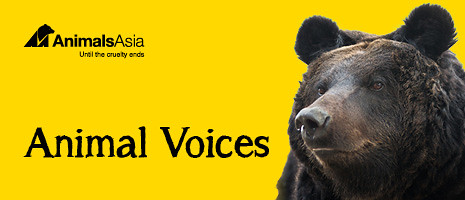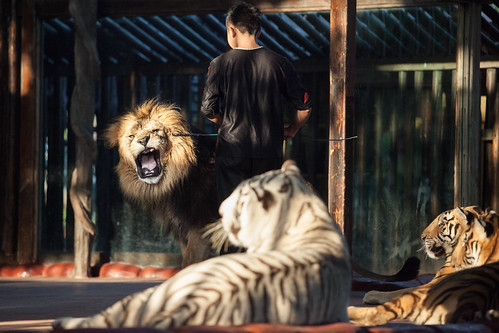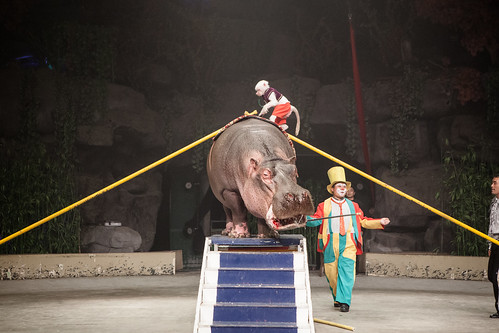Wildlife draft amendment is a misstep for China but changes little
02 February 2016
By Dave Neale, Animals Welfare Director, Animals Asia
“The fact that within China there has been a sustained reaction from animal welfare groups to this news gives us hope - even amongst the concern that this legislation generates."
A draft amendment to China’s long awaited wildlife protection law has been in the headlines in the past week and has angered wildlife campaigners as it would continue to allow breeding endangered species in captivity for profit.
These animals would be allowed to be used for commercial purposes including performances. Body parts could also be used for traditional medicine, health-care products and food.
For animal lovers in China this is certainly a backward step if not entirely a shock.
Essentially what has happened is a wildlife protection law has become a wildlife utilisation law.
As noted in the press, it seemingly ring fences the immediate future of China’s bile farms and it’s 200 tiger farms - while fears for the continuation of the pangolin species are heightened as the draft legislation also gives the power to license a commercial trade in endangered species.
Money talking is not entirely a surprise but it is a disappointment. In recent years we’ve seen increased suggestion that China does care about it’s public image - both in terms of the environment and animal welfare. An example are the moves to stop testing products on animals. While China authorities’ investment in a bear bile substitute are not the actions of an uncaring government. Meanwhile plans to cut coal use suggest a government keen to clean up its people’s skies and do its bit as part of an international effort to fight climate change. Is the above enough? No. But China is not alone in that respect.
In truth – to take bear bile farming as an example of the public reaction to this draft – It ends when the market ends, when no one wants to buy bear bile, when there’s a viable substitute. It ends when bile farming is no longer profitable. Progress in this direction is palpable with research on synthetic bear bile receiving active government support and the public very much against the continuation of bile farming.
There are enough loopholes in this proposed legislation for the status quo to be maintained, allowed, even worsened. Likewise, should the government wish to improve China’s animal welfare they can, at any time, through a different interpretation or stricter reinforcement. In that respect the legislation is a disappointment but it’s effect may yet be minimal.
And there are further glimmers of hope – even in this proposed legislation. It’s suggested that education departments and schools provide students with wildlife protection awareness. Beyond that it calls for wider awareness of wildlife protection with the media playing a greater role in both spreading the new legislation and calling to account those who break these laws.
What any legislation requires to help any animals, be they bred or kept in captivity, is a minimum standard of care – with facilities that allow them all their physical and behavioral needs.
The fact that within China there has been a sustained reaction from the public, conservation and animal welfare groups to this news gives us hope - even amongst the concern that this legislation generates. That is a substantial silver lining. China is changing and beyond all of this - it’s business as usual for Animals Asia as we continue to support humane and long lasting change, until the cruelty ends.
BACK








 5 reasons the dog meat trade must end
5 reasons the dog meat trade must end
 New year, new home for Christmas the Bear!
New year, new home for Christmas the Bear!
 Veterinary welfare training – pain management
Veterinary welfare training – pain management